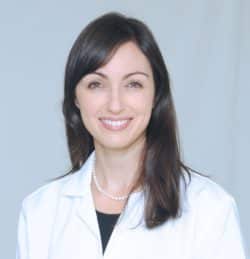Beyond Mammography: Supplemental Screening Breast MRI

Early detection of breast cancer saves lives, with a 40% mortality reduction in women aged 40 and older. This is the basis of breast cancer screening. The American College of Radiology (ACR) recommends annual mammography beginning at age 40 for average risk women. For women at high risk of breast cancer, defined as a 20% or greater chance of developing breast cancer over their lifetime, annual screening breast MRI is also recommended. Women at high risk includes:
- Those with the BRCA1 or BRCA2 mutation
- Strong family history of breast cancer
- Women treated with chest radiation therapy before age 30
- Women with personal history of breast cancer
- Women who have had breast biopsies with certain high risk pathologies
- Women with dense breasts
Breast MRI with contrast detects a greater number of cancers than either mammography or ultrasound, or their combination. The ACR recommends screening breast MRI in the following groups: https://www.jacr.org/article/S1546-1440(17)31524-7/pdf The age at which to start screening MRI will vary by patient, but is as early as age 25 for BRCA gene mutation carriers.
If it is determined that you need a breast MRI, here is what you should know:
- Like all MRIs, breast MRI does not utilize any radiation; it uses strong magnets to generate images.
- It does involve the intravenous injection of a contrast dye, gadolinium.
- Performing high quality breast MRI requires specialized equipment, as does performing MR guided biopsies.
- It’s important to have your scan at a facility equipped with this dedicated equipment, as not all hospitals and imaging facilities have these capabilities.
The primary downsides to breast MRI are false positives (undergoing biopsy and getting a negative result); and cost, as the test may not be covered by insurance. These disadvantages must be weighed against the benefit of detecting breast cancer at an early stage, which we know is life saving. Early detection also allows for less invasive treatments, preserving quality of life.
If you think you may be a candidate for breast MRI, speak with your doctor about undergoing a formal breast cancer risk assessment. This will give you the information you need to optimize your breast cancer screening protocol and ensure that you are in control of your breast health.
